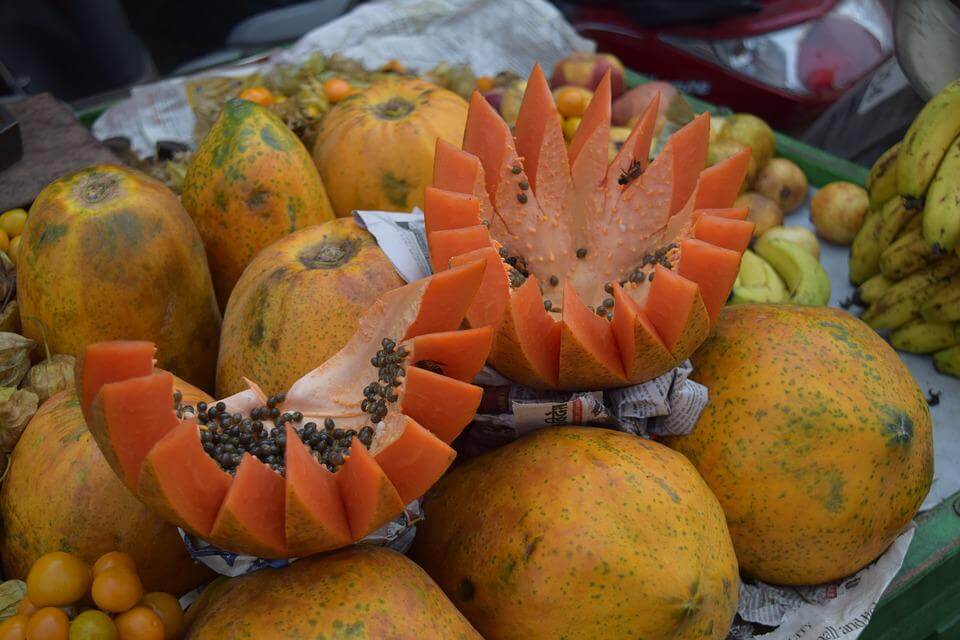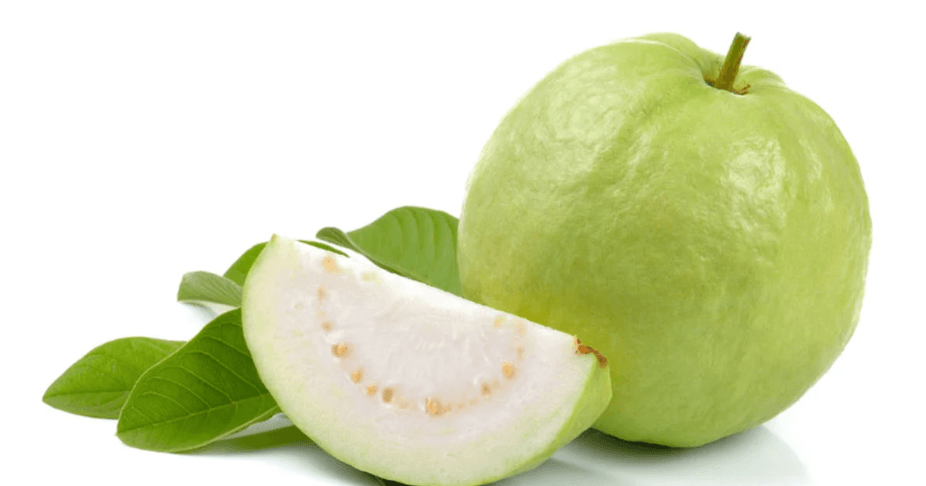
According to the World Health Organization (WHO) fruits are the tastiest medicines:
- Insufficient consumption of fruits and vegetables is one of the top 10 reasons behind 3.9 million premature deaths worldwide. Millions of lives could be saved each year by consumption of fruit and vegetables.
- Insufficient intake of fruit and vegetables worldwide is estimated to cause around 14 % of deaths from gastro-intestinal cancer, about 11 % due to ischemic heart disease, and about 9 % deaths due to stroke
- One in 10 cancers and 2.7 million lives a year could be saved due to regular intake of fruits and vegetables
- Just eating 400 grams of fruits and vegetables a day can prevent over 10 percent of strokes as well as reduce the risk of heart disease, cancer, obesity, and diabetes.
A study conducted by the American Society for Nutrition revealed that inadequate fruit and vegetable consumption accounts for millions of deaths from heart disease and strokes each year. The study estimated that roughly 1 in 7 cardiovascular deaths could be attributed to not eating enough fruit and 1 in 12 cardiovascular deaths could be attributed to not eating enough vegetables.
According to yet another research published in the International Journal of Epidemiology approximately 7.8 million premature deaths worldwide could be prevented every year if people ate 10 portions, or 800 g, of fruit and vegetables a day. The results revealed that even a daily intake of 200g could lead to a 16 percent reduction of heart disease, an 18 percent reduction of stroke, and a 13 percent reduction of cardiovascular disease.
Fruits help the body grow, repair damaged parts and boost the immunity to fight even chronic diseases. Eating fruits in the daily diet provide essential nutrients to the body and keep it hydrated. Fruits are known to help in digestion, improve blood circulation, give an amazing glow to the skin and shine to the hair and promote overall health.
Some of the popular and healthy fruits include apples, bananas, grapes, mango, orange, strawberry, guava, papaya, and watermelon. However, a point to be noted is that no single fruit has all the essential benefits. Each fruit has its own taste, flavour, and nutrient value. Hence, doctors advise you to eat different varieties of fruits and fill one-half of your plate with fruits and vegetables.
Let’s take a look at how each of these fruits help us lead a healthy life:
Mango:

Mango also called the king of fruits is rich in vitamins, minerals, antioxidants, and enzymes. It not only good to taste but has many health benefits. Mangos are one of the richest sources of Vitamins A, C, and E, minerals like potassium, calcium, iron, and phosphorus. Mangoes are low in carbohydrates and help combat stomach acidity. Mangoes contain antioxidants that protect our bodies against breast cancer, colon cancer, prostate cancer, and leukemia. Being rich in vitamins, essential nutrients, and fibrous content – mangoes help in digestion and burn unwanted calories and lose weight. Mangoes also help in maintaining the alkali reserve of our body. Mango has a low glycemic index, which means eating mango in moderation – regulates blood sugar levels and diabetes. Eating mangoes cleanses the skin and makes it glow. It also improves eyesight and prevents night blindness and dry eyes. Mango is also known to have aphrodisiac qualities that increase virility in men.
Apple:

Apple is the most widely consumed fruit globally. Apples provide vitamins A and C and are high in carbohydrates, dietary fibre, and flavonoids. An apple has only 50-80 calories and no fat, sodium, or protein. A raw apple is 86% water and 14% carbohydrates. This is in addition to small quantities of micronutrients iron, calcium, and phosphorus. An apple a day helps in controlling insulin, eliminating heavy metals like lead and mercury as well as detoxifying the body. The pectin present in the apple helps to reduce cholesterol levels by lowering insulin secretion. Preliminary research is investigating whether apple consumption may affect the risk of some types of cancer. Some studies have indicated that apples contain soluble fibre and flavonoid epicatechin that lowers the risk of heart disease, stroke, and blood cholesterol. The flavonoids present in the apples help prevent heart disease by lowering blood pressure, reducing LDL cholesterol oxidation, and reducing atherosclerosis or the build-up of plaque in the arteries. Another study has revealed that eating white-fleshed fruits and vegetables, like apples and pears reduces the risk of stroke. For every 25 grams of apple slices consumed per day, the risk of stroke decreased by 9%.
Also Read:
Dietary secrets to keep your heart healthy!
UV light can make fruits germ-free
Banana:

Banana is one of the most popular fruits worldwide and a good source of carbohydrates, fibre, magnesium, vitamin C, B6, and potassium. One serving, or one medium ripe banana, provides about 110 calories, 0 gram fat, 1 gram protein, 28 grams carbohydrate, 15 grams sugar (naturally occurring), 3 grams fiber, and 450 mg potassium. Though Banana is grown in practically all the countries in the world, India and China are the world’s largest producers of bananas accounting for approximately 38% of the total production. Bananas also act as an antacid and are said to protect against stomach ulcers. Eating bananas can help lower blood pressure and reduce the risk of cancer. The potassium and magnesium present in the fruit promote bone health besides protecting the heart and help maintain normal blood pressure. According to a study done by the University of Leeds in the UK, bananas can lower the risk of both cardiovascular disease (CVD) and coronary heart disease (CHD). According to Ayurveda, banana is known to stimulate Agni (the digestive juices) that support digestion and help in building up metabolism. The iron content in bananas is good for people suffering from anemia – who experience a decrease in the number of red blood cells or hemoglobin in the blood.
Papaya:

Christopher Columbus called Papaya “the fruit of the angels”. Papaya is a delicious tropical fruit with a high dose of vitamin A, vitamin C, and vitamin E. Papaya contains more than 200 % of our daily dose of Vitamin C which boosts immunity. The antioxidants in Papaya reduce the oxidation of cholesterol and the risk of heart disease. It is also known to prevent blockages in the heart. Papaya has a number of health benefits including asthma prevention and anti-cancer properties. Papayas contain an enzyme called papain that aids digestion, helps to prevent constipation, and promotes a healthy digestive tract. Researchers believe that the application of mashed papaya is beneficial for wound healing and prevents infection in burnt skin. Ointments containing the papain enzyme are used to treat ulcers and bedsores. Eating papaya regularly is good for the stomach and also helps prevent wrinkles and signs of aging.
Orange:

Oranges are a good source of vitamins, minerals, fibre, calcium, Vitamins A and B1, folate and potassium. Oranges are one of the richest source of vitamin C, a water-soluble antioxidant that prevents cell damage. The vitamin C found in oranges:
- Forms blood vessels, muscles, cartilage, and collagen in the bones.
- Fights inflammation and reduces the severity of conditions like asthma, rheumatoid arthritis, and cancer.
- Boosts the body’s immune system to protect against viruses and germs.
- Improves iron absorption and fights anaemia.
- Slows age-related macular degeneration (AMD), which can lead to vision loss.
- Lowers blood pressure and cortisol, the stress hormone.
The fibrous content in oranges controls blood sugar levels, reduces cholesterol, and prevents cardiovascular disease. Oranges are high in potassium, a mineral that regulates heartbeat and is known to lower blood pressure in people with hypertension. Oranges also contain citric acid – a sour compound that alters the pH levels in the urine and prevents the formation of kidney stones.
Guava:

One guava fruit contains about 377 mg of vitamin C. Guava contains almost four times the vitamin C present in oranges and more potassium than a banana. Guava also possesses a low Glycemic Index, making it diabetic-friendly. It is a nutritious fruit packed with vitamin C, polyphenols, and carotenoids. Guava is also rich in antioxidants, vitamin C & A, lycopene, calcium, manganese, and potassium. Guava is also low in calories, and high in fibre. The fibre in guava can help in losing weight and reduce cholesterol. Guavas contain a significant amount of manganese, phosphorus, and magnesium besides small quantities of other minerals like zinc, calcium, and iron. It may sound odd but it is a fact that Guava leaves – contain more benefits than the fruit itself. According to several research studies the Guava leaves have phenolic compounds that have antibacterial properties that help prevent infectious and parasitic diseases. The Guava leaves also help in relieving cough, cold, and are a great home remedy for toothache, swollen gums, and oral ulcers.
Grapes:

Grapes are full of vitamins, minerals, and potassium. Grapes are also a great source of vitamin C, which helps your immune system fight against bacterial and viral infections, and water, which keeps you hydrated. They are full of antioxidants that help fight free radicals, which can damage cells and lead to cancer. Grapes are also high in potassium, which keeps blood pressure under control. According to a study people who consume more potassium than sodium are less likely to die from heart disease than individuals who didn’t have as much potassium in their diets. Grapes also have lot of fibre which helps lower high cholesterol. A study on people with high cholesterol revealed that those who ate three cups of red grapes a day for eight weeks had lower total cholesterol and LDL “bad” cholesterol. Nutrients present in grapes also help decrease blood sugar levels and increase insulin sensitivity. Eating grapes regularly also helps to slow down aging, as well as catch a sound sleep and maintain strong bones.
Strawberry:

Strawberries are a rich source of vitamins C and K, potassium, iodine, omega-3 fatty acids, and fibre. Strawberries are sodium-free, fat-free, cholesterol-free, and low-calorie food and a good source of manganese, and potassium. Just one serving — about eight strawberries — provides more vitamin C than an orange. Strawberries can increase HDL (good) cholesterol, lower blood pressure, guard against cancer and protect the heart. Strawberries are known to lower the post-meal increase in blood sugar in people with obesity or type 2 diabetes. Eating strawberries can help protect against heart disease, stroke, cancer, high blood pressure, and constipation.
Watermelon:

A fresh, and juicy watermelon contains about 92% water and is low in fat which makes it easy to digest. Watermelon is rich in an amino acid called citrulline which helps maintain a smooth flow of blood through the body and lower blood pressure. Studies show that it may lower your risk of heart attacks. Vitamins A, B6, and C in watermelon help your skin stay soft, smooth, and supple. Some experts believe that the presence of antioxidants like vitamin C present in watermelon may reduce the risk of asthma and lower the risk of prostate cancer. Researchers are trying to prove that choline- another antioxidant that occurs in watermelon helps slow the progression of dementia in Alzheimer’s disease. Watermelon juice helps reduce muscle soreness and improves recovery time following exercise in athletes. Watermelon juice also acts as a natural diuretic and helps the body remove excess water and salt.
Pineapple

Pineapple is a delicious fruit packed with antioxidants and enzymes that protect against inflammation and disease. Particularly rich in vitamin C and manganese as well as numerous other vitamins and minerals, Pineapples also contain small quantities of other micronutrients like copper, thiamine, and vitamin B6. Pineapples are loaded with antioxidants that help fight chronic inflammation, weakened immune health, heart disease, diabetes, and certain cancers. A one-cup serving (165 grams) offers just 75 calories and 0% of your recommended daily value (DV) of cholesterol, sodium and fat. The fibre and water content in the Pineapples promote a healthy digestive tract and prevent constipation. Many studies have suggested that consumption of pineapples decreases the risk of obesity, diabetes, and heart disease. A number of studies suggest that pineapples have anti-inflammatory properties and help reduce inflammation. Eating pineapples before dental surgery appears to reduce pain and provide relief.
Pomegranate

Pomegranates are sometimes called ‘sick’ persons fruit because of their antibacterial and antiviral properties which help them fight against common infections and viruses. The presence of vitamin C and other immune-boosting nutrients like vitamin E in pomegranate juice helps prevent illness and fight off infection. Pomegranate helps decrease insulin resistance and lower blood sugar in diabetes. Pomegranates are high in fibre, vitamins, and minerals but low in calories and fat. Test-tube studies have found that pomegranate extract reduces inflammation in the arteries, lowers blood pressure, and helps prevents plaque build-up in the arteries that can lead to heart attacks and strokes. Test-tube and human studies have found that pomegranate extract helps reduce the formation of kidney stones. Another recent study has revealed that drinking 8 ounces of pomegranate juice daily may improve learning and memory. The concentration of antioxidants present in pomegranate juice decreases infertility in women. Pomegranate juice helps athletes improve their strength, reduce soreness and recover from exercise-related fatigue.
Peach

Peaches are full of vitamins, minerals, and antioxidants. Peaches are particularly good for pregnant women as well as those suffering from thyroid and diabetes. Peaches possess anti-inflammatory properties and are an excellent source of vitamin C which helps in the healing of wounds, particularly in hypertensive, obese, or diabetes patients. Peaches also help ease chronic inflammation in asthma patients. One medium peach can give you as much as 6% to 9% of the fibre your body needs each day. Peaches are good for digestion, a healthy heart, and strong immune system. They contain compounds that help reduce the risk of heart disease, high blood pressure, triglyceride and cholesterol. Carotenoids and caffeic acid — two antioxidants found in peach skin and flesh are believed to have anti-cancer properties and limit the formation, growth, and spread of cancerous cells.

